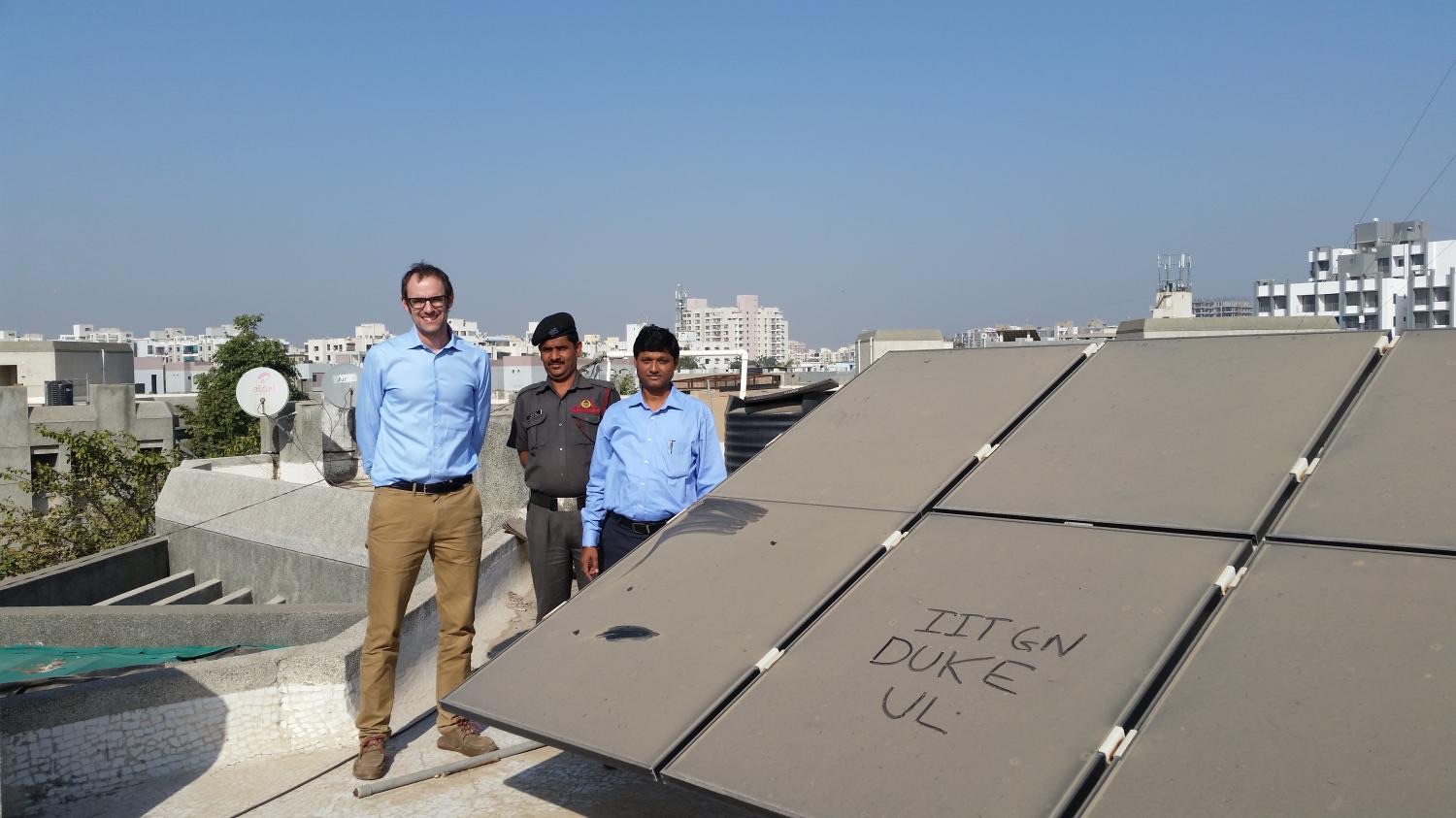Air Pollution May Make Solar Panels Less Efficient

From inefficient grids, shortfalls in policy, and even the occasional eclipse, solar-energy collection faces no shortage of hurdles. Scientists have discovered another stumbling block: air pollution. In certain parts of the globe, the accumulation of particulate matter on solar panels can curtail energy output by more than 25 percent, according to a new study.
Published last week in the journal Environmental Science & Technology Letters, the study revealed that the regions most susceptible to this challenge also have the heaviest solar investments. These regions include China, India and the Arabian Peninsula.
"My colleagues in India were showing off some of their rooftop solar installations, and I was blown away by how dirty the panels were," Michael Bergin, a professor of civil and environmental engineering at Duke University and lead author of the study, said in a statement. "I thought the dirt had to affect their efficiencies, but there weren't any studies out there estimating the losses. So we put together a comprehensive model to do just that." [In Photos: The World's 10 Most Polluted Places]
Working with his counterparts at the Indian Institute of Technology-Gandhinagar, Bergin measured the efficiency of the school's photovoltaic solar panels as they thickened with grime over several months.
The chemical analysis showed that 92 percent of the muck was natural dust. The remaining 8 percent? Pollutants from human activities, such as fossil-fuel and biomass combustion.
Although this latter group contributed a smaller percentage of the overall grime on the solar panels, it can result in greater energy loss, Bergin said.
"The man-made particles are also small and sticky, making them much more difficult to clean off," he said. In addition, smaller particles block sunlight more efficiently than natural dust does, he added.
Sign up for the Live Science daily newsletter now
Get the world’s most fascinating discoveries delivered straight to your inbox.
Although scrubbing the panels produced an immediate 50 percent uptick in energy gathering, Bergin warned against it.
"The more you clean them, the higher your risk of damaging them," he said.
In certain swaths of China, where pollution has a stranglehold, human-made particles can spell losses of tens of billions of dollars every year due to solar-energy-collection dips, Bergin said. (China currently snaps up about half of the world's new solar panels.)
"We always knew these pollutants were bad for human health and climate change, but now we've shown how bad they are for solar energy as well," Bergin added. "It's yet another reason for policymakers worldwide to adopt emissions controls."
Original article on Live Science.










